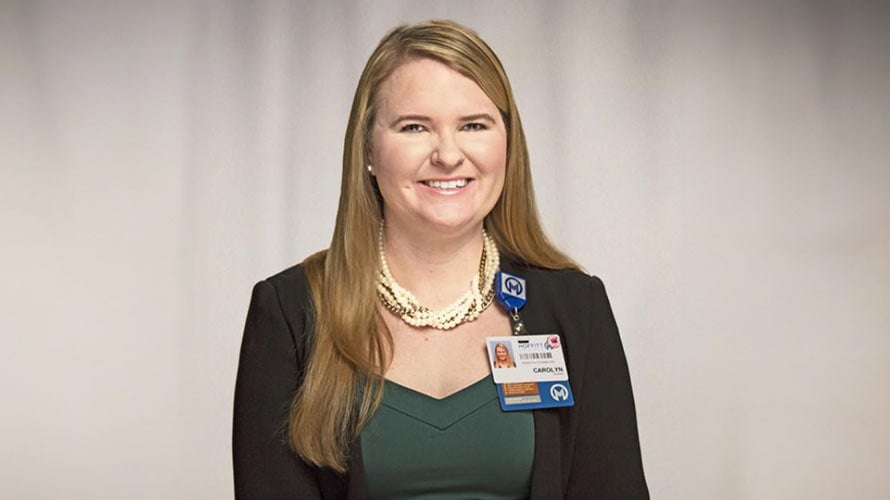Carolyn's Story

Meet Carolyn
Moffitt Genetic Counselor
"Some of my research entails better understanding inherited forms of cancer."
Genetic Counseling for Cancer at Moffitt
If you had cancer, would you want to know if you inherited it? Or, whether there was a risk of passing on a specific genetic disorder to your children?
As a genetic counselor, questions like these are central to the efforts Carolyn Haskins specializes in at Moffitt Cancer Center. “Some of my research entails better understanding inherited forms of cancer, looking at different conditions that may predispose an individual to developing cancer over their lifetime,” she explains.
In dealing with patients, she takes the time to help them understand the basics of biology, DNA, how genes are inherited, and what specific test results might mean to them and their family members.
It’s a collaborative field at Moffitt, where information sharing is essential. Carolyn’s team includes genetic counselors under the direction of medical geneticists. “We run cases by each other, we review things both before we see patients, as well as after,” she says.
Carolyn recalls a patient who was found to have a genetic mutation that led to an increased risk for neuroendocrine tumors. She ended up testing his four children and several grandchildren to learn whether they also carried the mutation. Knowing the risks, Moffitt was able to establish care with their providers to proactively screen them for the specific tumors.
Advances in Genetic Counseling
Looking ahead, Carolyn is excited about the advances in testing, citing a new technology that allows for multiple genes to be tested at the same time, thus accelerating the testing—and more importantly, getting that information to patients and researchers even faster.
Despite the futuristic nature of her work, Carolyn never overlooks the simple aspects of patient care.
“One of the biggest things we do is just listen,” she says. “Many patients don’t have the opportunity to voice what they’re feeling, what their family is feeling and some of the real struggles they’re having.”
